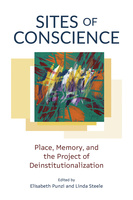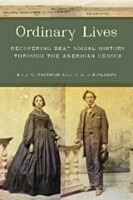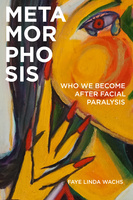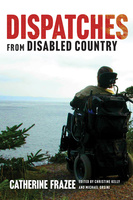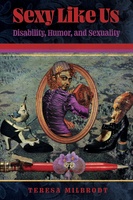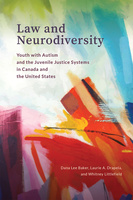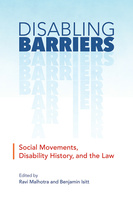Unmothering Autism
Ethical Disruptions and Affirming Care
Unmothering Autism rethinks autism and mothering to reveal what it means for us to live well together in, and through, difference.
Sites of Conscience
Place, Memory, and the Project of Deinstitutionalization
Sites of Conscience charts the importance of public engagement with histories, memories, and lived experiences of institutions in forging new directions in social justice with and for disabled people and people experiencing mental distress, in a context where deinstitutionalization has failed to fully recognise, redress, and repair the ongoing impacts of institutions.
Ordinary Lives
Recovering Deaf Social History through the American Census
Metamorphosis
Who We Become after Facial Paralysis
Dispatches from Disabled Country
Dispatches from Disabled Country is a nuanced and unmistakably poetic introduction to the rich landscape of disability activism and culture from one of Canada’s most recognized voices, Catherine Frazee.
Cripping Intersex
Cripping Intersex explores the political, discursive, and embodied connections between intersex and disability to develop a radically innovative approach to intersex studies and activism.
Sexy Like Us
Disability, Humor, and Sexuality
A powerful, truthful, and personal assessment of the many ways humor can bring about love and understanding
Disability Injustice
Confronting Criminalization in Canada
In Disability Injustice, scholars and activists deliver a much-needed and long overdue analysis of disability and criminalization in Canada.
Able to Lead
Disablement, Radicalism, and the Political Life of E.T. Kingsley
Able to Lead tells the forgotten story of the life of double amputee E.T. Kingsley, a pioneering politician, and labour and justice activist.
The Aging–Disability Nexus
The Aging–Disability Nexus explores the complex and competing narratives we create about aging and disability, providing fresh perspectives on how these markers interact with each other and with other indicators of power and difference.
Law and Neurodiversity
Youth with Autism and the Juvenile Justice Systems in Canada and the United States
Through a comparison of juvenile justice systems in Canada and the United States, Law and Neurodiversity examines gaps of accommodation and consideration for youth with autism.
A World without Martha
A Memoir of Sisters, Disability, and Difference
A World without Martha is an unflinching yet compassionate memoir of how one sister’s institutionalization for intellectual disability in the 1960s affected the other, sending them both on separate but parallel journeys shaped initially by society’s inability to accept difference and later by changing attitudes towards disability, identity, and inclusion.
Disabling Barriers
Social Movements, Disability History, and the Law
In Disabling Barriers, legal scholars, historians, and disability-rights activists encourage us to rethink our understanding of both the systemic barriers disabled people face and the capacity of disabled people to effect positive societal change.
Mobilizing Metaphor
Art, Culture, and Disability Activism in Canada
Mobilizing Metaphor illustrates how radical and unconventional forms of activism, including art, are reshaping the vibrant tradition of disability activism in Canada, challenging perceptions of disability and the politics that surround it.
Disability Politics and Care
The Challenge of Direct Funding
Disability Politics and Care documents what happens when people with disabilities take control of home care services and explores key debates around the notion of “care.”


